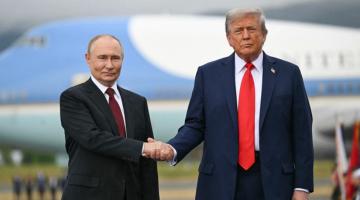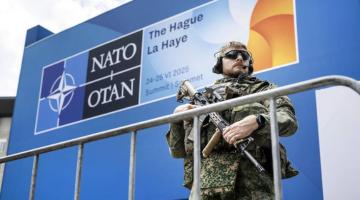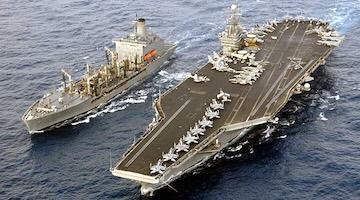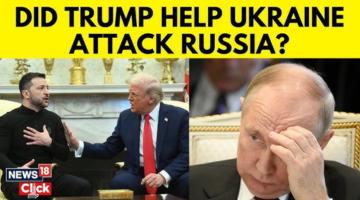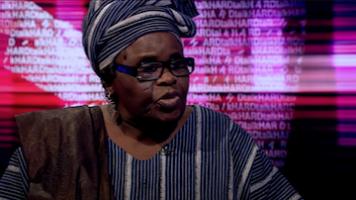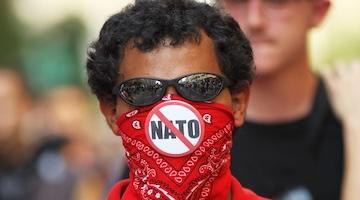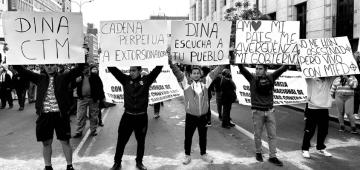Declassified papers from NATO’s archives detail a comprehensive counter-revolutionary strategy against decolonization, including the active sabotaging of Afro-Asian solidarity and the “spirit of Bandung.”
The North Atlantic Treaty Organization, or NATO, was organized in 1949 to provide for collective military defense of the United States and its white Western allies against the Soviet Union and the perceived threat of global Communism. For NATO, the perceived Communist “threat” included anti-colonial Third World nationalism and the movements for Afro-Asian unity. They saw the decolonizing world’s attraction to what they deemed the “Sino-Soviet” bloc - especially the bloc’s deep economic, cultural, and political collaboration with emerging nations - as an existential threat to the white west. For NATO, the Sino-Soviet’s influence on the Third World “appears to be that of accelerating the destruction of the West by depriving it of the markets and sources of raw materials in Asia, Africa and Latin America on which it is believed to depend for survival.”
As such, the NATO member nations decided to develop strategies to counter the Soviet Union. These strategies were tied to the suppression of Third World nationalism and “the spirit of Bandung.” Here, the “spirit of Bandung” refers to the political energies that gave birth to the non-aligned movement following the 1955 Afro-Asian Conference held in Bandung, Indonesia, in 1955, and that were carried forth in the African Asian Peoples' Solidarity Conference, hosted by Gamal Abdel Nasser in Cairo, Egypt from December 26, 1957 to January 1, 1958.
Following the Cairo conference, NATO’s Committee on Political Advisors met to assess the potential ramifications of the dangers of Afro-Asiatic solidarity. After considering proposals and comments from NATO’s member states, the Committee drafted a fifteen-page internal white paper (reprinted below) that strategized how best to counter, undermine, and ultimately destroy what they described as “the threat of Communist-nationalist alliance against the West.” The white paper is striking for both its thoughtfulness and thoroughness. The Committee is clear that for NATO, the danger of both Communist-nationalist alliance and Afro-Asian solidarity is in the threat to the hegemony of NATO and the western capitalism and colonial projects of NATO’s member states. NATO members were, in fact, worried about not only losing access to raw materials and markets, but of the potential slowing of the global expansion of western ideals and ideologies.
Through nakedly racist terms, the white paper assessed the “psychology” of African and Asian anti-colonial nationalists, determining that they desired “respect and recognition,” that they carried a “hypersensitive resentment,” that they were “insecure,” “frustrated,” “emotional,” “irrational,” and susceptible to “flattering attention.” For NATO’s committee, such a psychological disposition – such irrational “feelings” – were “expressed by a demand for the end of colonies, of racial discrimination, and of the Algerian war; for represenation in international conferences, for terms of foreign aid compatible with national respect and sovereignty; in vast programs to promote education, national culture, social welfare and economic progress on a Pan-African or Pan-Asian scale; and by plans for joint political action in the future.”
The Committee combined these psychological assessments with analyses of the Soviet Union’s Afro-Asian political, economic, and cultural strategies, and with their perceptions of Nasser’s efforts to encourage Afro-Arab and Pan-Arab solidarity. Together, these shaped the range of countermeasures proposed to NATO’s governing council. Many of the measures were drawn from previous efforts to undermine Communist Front organizations in the West; others were borrowed from tactics currently in use by local governments and colonial administrators; almost all echoed the infamous domestic tactics of the FBI’s Counterintelligence Program, or COINTELPRO. The countermeasures included: the co-optation of intellectuals and cultural workers, students and the youth; the establishment of pro-Western schools, cultural centers, newspapers, radio and television stations, film and documentary productions; the organization of cultural and literary forums and academic conferences; embarrassing local governments and disseminating “damning” disinformation on political leaders; circulating information that discredited the Soviet Union, especially in relation to Russian “colonialism” and its views on religion, especially Islam; mobilizing technical assistance and economic aid to undermine Communist influence; Harassing” the solidarity movement by blocking the organization of future conferences and distributing negative publicity about it. A key strategy was to encourage the development of an “African personality” and other expressions of nationalism that would promote historical and cultural differences between African and Asian peoples, potentially breaking their political and economic bonds.
Only a deep dive into the archives of NATO and its member states would reveal how many of these countermeasures were actually deployed. What is regrettably clear is that they obviously worked. The proof is not only in the curtailment of Afro-Asian political and economic unity, but also in cultural and educational sectors. We need only look at the white west's aid and development apparatus, or the curricula of political science or “development” or “cultural studies” or “area studies” courses - in both western and Global South universities - to see the success of this counter-revolution against Afro-Asian solidarity.
The Afro-Asian Solidarity Movement: The Threat of A Communist-Nationalist Alliance Against the West
Committee of Political Advisors, North Atlantic Treaty Organization
The Afro-Asian Peoples Solidarity Conference, which met in Cairo in December 1957, drew attention in the West to the dangerous potential collaboration developing between the Sino-Soviet bloc and anti-Western, nationalist elements of Africa and Asia.
2. The Conference failed generally to attract delegates of any national standing, with the exception of those from the five Communist and the seven non-Communist states (Egypt, Syria, the Yemen, Ethiopia, Tunisia, the Sudan, Ghana) which sent delegations. The USSR, however, used the conference effectively to identify itself with the forces of discontent and change in Africa and Asia. In the establishment of a Permanent Secretariat in Cairo and proposals for the organization of a galaxy of new Afro-Asian organisations, Moscow threatened to control a new regional “front” organization which could, more effectively than the existing international “fronts,” serve as a transmission belt for Sino-Soviet penetration into Africa and Asia.
3. The Afro-Asian Solidarity movement has not thus far built up the momentum apparently envisaged by either the Communist or nationalist delegates to the Cairo Conference. Only three of the ten secretaries of the permanent organization have arrived in Cairo and no very serious efforts have been made to organize the various new Afro-Asian associations. Outside of the Soviet bloc, relatively little attention is being paid either to the local solidarity committees or to the periodic demonstrations organized by the Cairo Secretariat. The Egyptian Government has, however, apparently taken steps to organize and control the Permanent Secretariat, suggesting an intention to at least hold the organization in reserve as an instrument of Nasser policy. At present the semi-clandestine Egyptian radio “Voice of Free Africa,” organized after the Cairo Conference, is the principal mouth-piece of the solidarity movement.
4. The shift of the capital of the solidarity movement from New Delhi to Cairo was no doubt partially due to the generally cold reception given in Asia to an organization exploiting the “spirit of Bandung.” It reflected in particular the shift in the focus of Soviet penetration efforts after 1956 to the Middle East and Africa. Moscow apparently saw in the solidarity movement one of many weapons of a broad strategy toward the under-developed regions rooted in the teachings of Lenin. Immediate strategic objectives may vary but the broad purpose appears to be that of accelerating the destruction of the West by depriving it of the markets and sources of raw materials in Asia, Africa and Latin America on which it is believed to depend for survival.
5. The conduct of the Sino-Soviet delegation at the Cairo Conference offered a case study in contemporary Communist tactics in under-developed countries. The bloc delegates sought in particular:
(a) to encourage the peoples of Africa and Asia actively to promote the "national liberation" of all colonies and trust territories;
(b) to persuade them that a policy of "positive neutrality" based on co-operation with the bloc is to their advantage, since it ensures them of political support in any conflict with the West and of trade, credits and technical assistance should they be withheld by the West;
(c) to encourage them, however, to depend primarily on their internal resources and not foreign assistance for economic development, and for this purpose to nationalise all foreign properties (Moscow is apparently anxious lest a programme of economic competition between the bloc and the West for the favour of the less-developed regions be very costly and result only in a tightening of the Western economic grip);
(d) to convince them, that unlike the "imperialists", Communist countries are inspired to extend assistance only by understanding and unselfish love of their fellow men;
(e) to persuade them that only by “defending peace”, i.e., Soviet foreign policies, can they protect a freedom, jeopardised by the tensions of the "cold-war.”
6. It is understandable that the Sino-Soviet bloc should find Nasser and the nationalist intellectual and military circles which support him, responsive to its wooing. Lacking the strength to achieve his objectives alone, Nasser has sought to capitalise on the conflict between the Communist and Western blocs to obtain economic and diplomatic support. To unify all Arab peoples under his leadership, he has needed to offer them a feasible alternative policy to that of alliance with the West. The fact that he can expand his influence only at the expense of Western-backed regimes has increased his dependence on the USSR for political support. It is difficult to measure his real attitude toward the USSR because of his efforts to reassure the West about his intentions. He appears at least not unaware that there are dangers in his policy; in particular, he cannot afford politically to become known as a “tool of Communism”.
7. Doctrine as well as practical considerations compel Soviet support of Nasser. In Egypt as elsewhere, the “national bourgeoisie and national intelligentsia” have shown that they can successfully lead a “bourgeois-democratic anti-imperialist” revolution - defined in Soviet doctrine as the necessary transitional step to Communist revolution in more advance [sic] under-developed countries. The Communists are told that they should support the nationalists under these circumstances, but that they should at the same time extend their influence among the masses and so prepare the way to a seizure of power through parliamentary majority. The Soviet press has noted with pleasure the progress made with this tactic in India and Indonesia. The dissolution of the Communist party in Syria violated one premise of this strategy. The fact that Moscow acquiesced in this action without, a public murmur only underlined the extent to which ungrudging public support of the UAR [the United Arab Republic: a short lived (1958-1961) political union of Egypt and Syria] had perforce become the cornerstone of Soviet policy in Africa and the Middle East. The reduction of Western influence in the Arab world through the policies of Nasser would well justify a derogation of principle. The Soviet leaders probably hope at the same time, that the economic and political difficulties encountered by the UAR will force it to rely increasingly on the Communist bloc and will provide continuing opportunities for Communist penetration.
8. Suggestions of reserve in the attitude of Nasser toward the USSR have not altered the fact of growing collaboration. For example, in addition to granting extensive economic aid, Moscow has promised to establish vocational training centres in ten Egyptian cities and in this connection to supply educators, experts and machines for eight different industries including atomic energy. Egyptian students and teachers are being trained in the USSR, while Soviet teachers are to teach Russian in Egyptian high and secondary schools. The UAR has become the only non-Communist member, outside of Finland, in the International Radio Organization in Prague; (the session at which the UAR was admitted discussed inter alia the production of "small economic" radios adapted to "hot tropical countries"). There is the continuing danger that the Egyptians may find it expedient to use Communist experience and even propaganda materials in their own extensive radio, films and other propaganda efforts or, at least not to hinder substantially the distribution of Soviet Bloc materials. The effect of Nasser's policy and of Egyptian statements praising the bloc countries is inevitably to enhance their prestige among people susceptible to Egyptian influence in a manner which the bloc could not hope to achieve by itself.
9. For the time being, Moscow has reason to be satisfied with the results of its policies towards the new nations of Africa-Asia. It apparently regards its collaboration with the UAR as the best possible opportunity to advertise the benefits of cooperation with the bloc. It probably hopes thereby to influence states currently oriented toward the West, hence its periodic overtures to such countries as Iran, Pakistan, Tunisia, Ghana. Present Soviet policy is not without potential complications. By giving unqualified support to the expansionist policies of Nasser, for example, Moscow may risk both tarnishing its reputation as a champion of peace, and making enemies among other national forces in Africa which it may wish to woo. Equally, it faces the problem of how much to strengthen nationalist movements which, at the same time, collaborate with the West.
10. The trend is for an increase in Soviet bloc pressures of attraction and penetration against the under-developed world as a whole, not merely against the UAR. To illustrate the scope of this effort, Arab-language broadcasts have tripled over the last year but Moscow has also increased or initiated broadcasts in Persian, Tamil, Burmese, Indonesian and Pushtu, and most recently in England and French to Africa. In 1957, some 2,000 technicians and students from less developed countries studied in the bloc: and in the last half of the year, some 2,300 bloc technicians spent at least a month in nineteen less-developed countries. A vast programme of Oriental language and area training is to be supplemented this Autumn with extensive African language courses in Leningrad University (e.g., the Swahili, Amharic, Hausa, and later Luganda, Luba., Congo and Yoruba tongues). Since 1956, Moscow has taught Hindi, Urdu, Arabic and Chinese in its secondary schools; this year Persian and Arabic are to be introduced in Tazhik secondary schools. When supplemented by film festivals, the publication of literature by Asian and African authors, etc., this display of interest in the under-developed countries not merely develops needed cadres of Soviet experts but is extremely flattering to the ego of people who have long resented the tutelage of the West.
11. The danger of the Soviet bloc and Nasser programmes lies not so much in the intensity of effort devoted to the task of undermining the West, as in the appeal which both programmes can hope to exert in the irrational, emotional climate of opinion of the under-developed areas, characterised by:
(a) the aspiration and expectation of change, which is the real leaven of revolution;
(b) a profound psychological longing for respect and recognition and hyper-sensitive resentment of any suggestion of disrespect;
(c) an anti-Western feeling rooted not only in experience, but also in the need of an
Insecure people to vent their frustration on a convenient scapegoat;
(d) the wish to build a new national society, which combines the best of traditional and
Western values but is somehow unique;
(e) the desire of a frustrated intelligentsia for a meaningful and constructive outlet for its energies;
(f) unrealistic hopes to build overnight the foundations of a modern, industrial state;
(g) a feeling that the less-developed nations represent an under-privileged "proletariat” in the family of nations which can throw off the shackles of history only through joint action.
12. Translated into concrete issues, these feelings are commonly expressed by a demand for the end of colonies, of racial discrimination, and of the Algerian war; for represenation in international conferences, for terms of foreign aid compatible with national respect and sovereignty; in vast programmes to promote education, national culture, social welfare and economic progress on a Pan-African or Pan-Asian scale; and by plans for joint political action in the future. If, to achieve these objectives, many nationalist look to the USSR and Communist China for support and guidance, it is not only because they think they have found a friend; the fact that these two multi-racial and under-developed countries, have seemingly “lifted themselves up by their bootstraps” makes their experience of planned social revolution appear more relevant to the needs of Africa and Asia than that of the West.
13. The Accra Conference of Independent States demonstrated that, despite their great mass appeal, the extremist politics of Nasser and of the Communists have not hitherto commanded the support of the majority of present African leaders. The spirit of this conference was that of Bandung not of Cairo: the solidarity movement was not even mentioned by name. If the conference was evidence that there are genuine nationalist forces willing to seek a solution to their problems in collaboration with the West, it also a reminder that the forces of social change are on the march in Africa as well as Asia, and time for the West is running out.
***
DIRECT COUNTER-MEASURES TO THE "SOLIDARITY" MOVEMENT
14. The following counter-measures are suggested as possible means to hamper the “Solidarity” movement wherever it is particularly active. Many of these measures have, of course, been applied against Communist Front organizations in the West.
15. Enlisting the support of Local Governments – by pointing out the consequences of inaction (e.g., perversion of the principles of Bandung, intrusion of the "cold war” into social and humanitarian fields, the dangerous tendency to divide the world along “colour” lines, the growing interference of Nasser and the Soviet bloc into the affairs of sovereign states, etc.,), it may be possible to persuade some local governments to take the responsibility for action against subversive organisations. Local co-operation is a vital element of any Western counter-measures.
16. Adverse Publicity.
Direct efforts to discredit “front” or to play on the latent suspicion of all Great Powers, including the USSR, could be counter-productive if handled in an indiscreet or aggressive manner. Depending, however, on opportunities available, the dissemination could he useful of:
(a) damning biographic information on leading local members of “Front” organizations;
(b) samples of pro-Soviet, clearly non-neutral resolutions and statements made in the name of the "spirit of Bandung";
(c) analyses of the "united front" as a Russian Communist tactic practised since the early 1920s;
(d) analyses of Russian Communist doctrine the exploitation of nationalist movements in “colonial and dependent countries”;
(e) analyses of Russian "colonialism" notably in Soviet Central Asia, including the testimony of refugees from this area;
(f) analyses of the Communist attitude towards religion, notably Islam (for selected audiences only).
17. Administrative Measures.
The proposal of one NATO Government that Western-oriented delegates be encouraged to infiltrate both the local Solidarity Committees and the Secretariat would seem to have merit only if the Solidarity Movement should greatly enhance its prestige. In the meantime, ignoring the movement or, at most, harassing it, e.g., by obstructing the holding of conferences and unfavorable publicity, would seem to be a better policy.
18. Exploitation of Local Government Sensitivity.
Governments professing to follow a policy of neutrality might be pushed by embarrassing publicity to disassociate themselves publicly from subversive movements or to modify the politics of such movements. The presence of an Egyptian as Secretary of the Afro-Asian Permanent Secretariat provides such an opportunity.
19. Provision for alternative constructive activity
In some cases it should be possible to promote alternative forums and activities having some of the appeal provided by the Communist-front or other subversive movements, ie., opportunity for self-expression, an impression of constructive work, recognition, a sense of solidarity. The frustrated intelligentsia in the less developed regions has too often lacked some permanent organization, ad hoc conference or regular publication into which to pour his energy and enthusiasm. Such forums need to be established as a general principle and not only to draw off support from specific Communist activities.
20. Encouragement of the Sense of National Difference
The impression in the less-developed regions that “solidarity” can be a panacea for the problems of the area reflect in part, an unrealistic view concerning the extent to which the peoples of Africa and Asia have similar backgrounds and problems. One concrete achievement of the Accra Conference was to bring home to the assembled delegates the extent of their differences. The evident desire of the Asian and African people to study their own history and problems should be encouraged, among other reasons, because they may become thereby less prone to over-simplified generalisation. The wish to express an "African personality” enunciated at the Accra Conference, is possibly a step in the right direction away from the emotional concept of an Afro-Asian bloc. The West needs to be very careful, at the same time, lest it gives the impression of wishing to divide the peoples of less-developed regions by accentuating their national differences.
***
A LONGER RANGE POLICY
21. Those NATO Governments which presented views on what should be done to counter the dangers implicit in the Afro-Asian Solidarity Movement were in general agreement that purely negative measures were not enough. The need was expressed for “comprehensive Western policy taking into account the psychology and aspirations of the Afro-Asiatic peoples”. In the words of another Government “The answers the West makes to the feelings that … undergirded the Cairo resolutions will certainly affect the Western position in Asia and Africa in the decades ahead ... In the interests of the Western position, the answers made must be positive and constructive”.
22. The proposals submitted by these governments were, however, very general in character. The promotion of an “African personality” has already been mentioned, as well as the organization of rival conferences to those sponsored by the Solidarity Movement. Other suggestions were for cultural exchange and scholarship programmes in Africa, and for support of organizations promoting co-operation and technical and financial assistance. The most ambitious proposal mentioned by a NATO member was for a “massive and concentrated” programme of economic assistance, on unconditional terms, divorced from military assistance, responding to the desire of local governments for industrialisation und foreign markets, and directed at key geographic areas to avoid a “small package” dispersal of means. It was suggested that the Western states should even apportion tasks in such a co-ordinated economic effort.
23. In accordance with the view voiced in the NATO Political Committee, that this report should focus on the possible actions which the Western Governments might undertake rather than restricting itself to purely factual reporting of the Solidarity Movement, the Secretariat has drawn together a wide variety of proposals, which it does not pretend are original, but which may serve to illustrate the far-reaching implications of a positive and comprehensive policy for this area. A paper of this scope cannot hope to give credit to the many-faceted programmes which are already in existence or to the imagination and devotion of local governments, colonial administrators and foreign aid specialists throughout the underdeveloped regions. It can hope only to indicate the broad lines of approach, so that what is not being done might be considered, and what is begun might perhaps be expanded.
24. It is the view of at least several governments that any NATO programme as such should be avoided. Individual governments should rather implement those types of measures which each feels best able to undertake. It is in this spirit that the following suggestions are set forth.
A. The Approach
25. In view of the psychological atmosphere in the less developed areas, the manner of presenting any Western program is as important as its content. Obviously, the more comprehensive the programme, the more it is presented as a new and long-term approach to the problems of the area, the more likely it is to have impact and credibility. There is a danger in this approach, however, of giving people who are already unrealistic in their expectations, an impression that the West is prepared to do more than is actually the case.
26. Only if the West is able first to establish a relationship of trust with at least the governments of the less-developed regions, will it be in a position to exert effective influence. They and their peoples need to feel that the spirit underlying any Western programmes is one of real generosity, understanding, respect and service. Where at all practical, the West should be guided in what it does by what the local governments feel they need. This approach implies some concessions to the impractical desire to have the outward symbols of a developed society before the base is laid. It is important, however, in view of the inevitable disparity between expectation and actual progress, that peoples be given tangible evidence of improvements in their living standards and the promise of more to come. Western programme might also usefully take into-account the desire for regional and even Pan-African or Pan-Asian development. In view of the sense of Afro-Asian solidarity, it may be important to offer Western assistance to all states without discrimination; in practice, it should be possible to concentrate aid where it is felt it will do the most good.
27. Even a very ambitious Western programme will not, of course, radically alter the emotional climate in the less-developed regions. The West will still be criticised and many will continue to look to the Soviet bloc for help and guidance. Greater opportunities for self-development and economic progress may reduce local interest in remote political issues. The existence of of colonies and of racial discrimination will nevertheless continue to exacerbate relations between the West and the less-developed countries.
B. Recognition
28. There are many small gestures which might bring a disproportionate return in good feeling:
(a) regular consultation, in particular with the permanent Afro-Asian delegates at the United Nations, but also with diplomatic missions wherever they are to be found;
(b) other forms of flattering attention: selection of African and Asian delegates to head organizations or conferences; location of conferences in Africa or Asia; frequent social invitations; requests to lecture; favourable press and official comments; acknowledgement of “Africa Day” and other national holidays; exchange visits of scholars; request for advice on the part of Western scholars interested in the less-developed areas, etc.
C. Economic and Technical Assistance
29. A detailed discussion of this issue was not attempted since a Western programme is so directly dependent on the amount of resources made available. There are, however, certain general opportunities for Western action which might deserve attention.
30. The Principles of Foreign Aid.
In contrast to the Cairo Conference, the Accra meeting strongly encouraged the use of foreign capital and technicians, but proposed that the African powers should first agree among themselves on terms of assistance compatible with national sovereignty. It is to be hoped that the African terms will be practicable. The West might, however, consider taking the initiative by drawing up in consultation with the Afro-Asian bloc a statement of liberal principles of economic and technical assistance.
31. UN Economic Commission for Africa [UNECA]
This new organization comprising all states with territorial responsibilities in Africa (five NATO members), with headquarters in Addis Ababa, would seem to offer a useful channel through which to deal with the peoples of Africa in matters of economic and social development. To the extent that Western economic assistance programmes might be associated, if only formally, with UNECA, they might not so easily be made the object of suspicion.
32. Common Market Overseas Development Fund
Depending on its application, the Development Fund for Overseas Territories could serve to lessen apprehension in Africa concerning the economic and political implications of the European Common Market, as well as to demonstrate Western interest in promoting the economic development and welfare of less fortunate people. In particular, if money were spent on developing educational and other facilities, as well as in building factories to process locally the agricultural products of the colonies, it would rebut the Communist charge that the purpose of the fund is to tie part of Africa more closely to Europe as an “agricultural appendage” to be exploited. The fear that colonial territories will have unfair economic advantage in marketing their products in Europe might perhaps lessen if an understanding attitude were adopted by the members of the Common Market toward requests for tariff concessions on the part of less-developed countries.
33. Community Effort
The “campaign” approach used most conspicuously by Communists to solve problems of hygiene, land clearance, house and road construction, irrigation, etc., in which mass human will and energy is a substitute for capital and machines, has obvious psychological and social value - as well as being utilitarian. Some non-Communist governments have initiated similar community efforts. Western governments might find it useful to offer whatever assistance they can to such programmes, where they exist; and Western technicians employed by local governments might, in turn, encourage this approach to economic development. Because local governments use extensive publicity to generate support for such community projects, any Western assistance might well benefit from gratuitous advertisement.
34. Recruitment and Use of Western Technicians
Until local governments can, with Western assistance, train their own cadres of specialists, technicians will remain in critically short supply. In attempting to fill this gap, the West faces the problem of getting the right sort of people in adequate numbers and on conditions which make- them most effective in their relations with the local government. Two approaches to this problem might be examined:
(a) Some arrangement whereby local governments can afford actually to hire Western technicians. In at least some instances, the relationship of the Western technician to the local government and his working colleagues has appeared to be better when he was an employee of the local government and not of a foreign state or organization. The Western employees would require, of course, some assurance of job tenure.
(b) A greater use of young people, who have just finished their training, in jobs where long experience is not essential. It should be easier to hire them, combining effective publicity appealing to their idealism with material inducements, e.g., bonuses, exemption from military service, priority employment rights upon return from a tour of duty in a less-developed country, etc.
D. Education
35. The following are among the measures which the West might take to develop trained cadres in the less-developed regions:
(a) establish as a “show piece”, a Pan-African university in some Western-oriented state or expand an existing institution for this purpose;
(b) distribute technical schools specialising in a particular field among the states of the region, so as to avoid rivalry in educational facilities and encourage an inter-regional
exchange of students. It might be necessary to use preferential stipends to channel students into professions currently lacking prestige;
(c) scholarships for study in the West are also necessary but no substitute for local training;
(d) educational films and television could be applied to training in many fields;
(e) free lessons in the principal Western languages would probably be popular; local citizens interested in-learning English should at least not have to learn it, as has sometimes happened, from Nasser-oriented Egyptians.
E. Cultural Activities
36. The following types of programmes might be helpful to establish essential services in a new society, and to provide creative employment for the intelligentsia. The West would need, however, to supply both capital and know-how:
37. Cultural Centres
A civic centre incorporating a theatre, museum, lecture halls and even recreation and sport facilities, dedicated perhaps to some symbolic Western figure (e.g. Rousseau, Booker T. Washington, Wilberforce) would serve as a dramatic reminder of the continuing interest in the West in the happiness and cultural development of the local population.
38. Radio and Television
To syphon off the current audience for the Moscow and Cairo radios, and use these media for propaganda and education purposes, radio and TV facilities under responsible government supervision, as well as training courses for producers, announcers, etc., should be established where they do not exist. Some schemes to provide cheap sets would need to be expanded. The West might also examine the value of increasing its own radio broadcasts in the vernacular.
39. Encouragement of a Responsible Press
A school of journalism organized by a responsible, Western-oriented government, on a scale to attract would-be journalists from the whole region, perhaps with lectures by Western correspondents, and focused on the responsibility for objective reporting of a free press, could play an important role in democratic development. A primer course on the Communist press and the Communist use of ambiguous words might be a useful feature of any such school.
40. Film Distribution
To combat the distribution of cheap films by the Soviet bloc and particularly Egypt, and provide a medium for both diversion and education, the West might consider:
(a) distributing appropriate Western features and documentaries at virtual cost;
(b) establishing local film studios and schools for training necessary actors and technical personnel.
41. Publications Distribution
To counter the influx of cheap Soviet bloc periodicals in the local language, the West might examine the possibility of:
(a) distributing in the original, as well as in translation, cheap copies of basic cultural,
technical and scientific literature;
(b) to set up a translation service supplying the local population with Western writings in the vernacular, and the West with translations of the local vernacular press;
(c) sponsoring the publication of books, poems, literary magazines, etc. by local intellectuals.
42. The Study of National Culture
To counter the “scholarly” studies of former colonial countries issued in Moscow, satisfy local demands for courses in national history, and demonstrate Western appreciation of local culture, the West might usefully finance various research projects, regional history and art faculties in local schools, regular publications run for local historians, conferences of specialists in African and Asian studies, exchange visits of students and professors specialising in this field, etc.
F. Language and Area Studies
43. The West is hampered in any large-scale programme involving Africa and Asia by a lack of people having the combination of language, knowledge and needed technical skills. To overcome this lack, the West might study where best to organize intensive training programmes for both area specialists and technicians or administrators going to work there. It would seem most practical to have one centre in North America, one in Europe, plus local programmes in different parts of Africa and Asia where the students could complete their education. Nationals of Africa and Asia should, of course, be consulted and closely associated with this training programme.
G. The Encouragement of Democratic Institutions
44. To the extent that Western philosophical concepts and institutions take root in Africa and Asia, Communist or other extremist practices and beliefs will meet opposition. To encourage this development, the West might usefully examine how better to present its beliefs and what regional training programmes might be established to train officials in the key elements of good government.
45. Propaganda for Democracy
In presenting principles of democracy which have ironically often inspired African and Asian intellectuals in their opposition to the West, the West might emphasize the following:
(a) while seeking the welfare of their citizens, societies differ in the means used to achieve their goals. In the long run, a policy which justifies bad means to achieve a good objective is bound to fail. This is the internal contradiction of Communism which is rooted in the belief that conflict and violence must be the mid-wife of progress, that a single political party can have the monopoly of wisdom, that justice is a relative value, depending against whom it is exercised, and that the collective is more important than the individual. To accept any one of these principles is to invite tyranny;
(b) Courses teaching political theory and institutions should stress that the essential
difference between Western “capitalism” and Communism is not that of a "plan less" as
against a planned society; in fact, all societies plan in varying degrees. Rather it is a question of what forms of planning are considered in different countries necessary and compatible with the objective of developing the individual. From a propaganda standpoint a label like “democratic humanism” emphasising the spiritual content of Western life, might be more appealing in the under-developed countries than “capitalism” or “socialism” which describe society in terms of economic form.
46. Government Training Programmes
To train local officials in democratic government, it would seem valuable to establish:
(a) law courses for lawyers, jurists and also perhaps police officials;
(b)a special regional police academy which might well teach not merely crime detection but techniques of Communist penetration;
(c) training in proper tax, economic and administrative practices which can make the difference between stability and chaos;
(d) A regional military academy attended by officers from various African and Asian
states who might complete their training with a period of study in the West. An army might seem like an unnecessary economic burden for a new state, but the Soviet bloc has appealed effectively to nationalist feelings of prestige by providing arms and military training. To avoid this, the West should perhaps encourage the formation of a small, highly trained professional army. Any such measure would need to be accompanied by stringent safeguards to ensure that the army, and especially its officers, could not become a centre of political ambitions.
47. The attraction of all these regional training courses would lie, of course, in the quality of equipment and teaching staff and the feeling of potential students that the focus of the courses was on effective “modern” government.
***
48. Clearly the tentative suggestions set forth above would need far more thorough examination and working out in detail before they could constitute the basis for a practicable programme or policy. Especially in economic, educational and cultural questions there would need to be an accurate survey of conditions in specific areas.
Palais de Chaillot
Paris, XVIe.
Committee on Political Advisers, North Atlantic Treaty Organization, “The Afro-Asian Solidarity Movement: The Threat of A Communist-Natioalist Alliance Against the West,” July 17, 1958. NATO Archives Online

